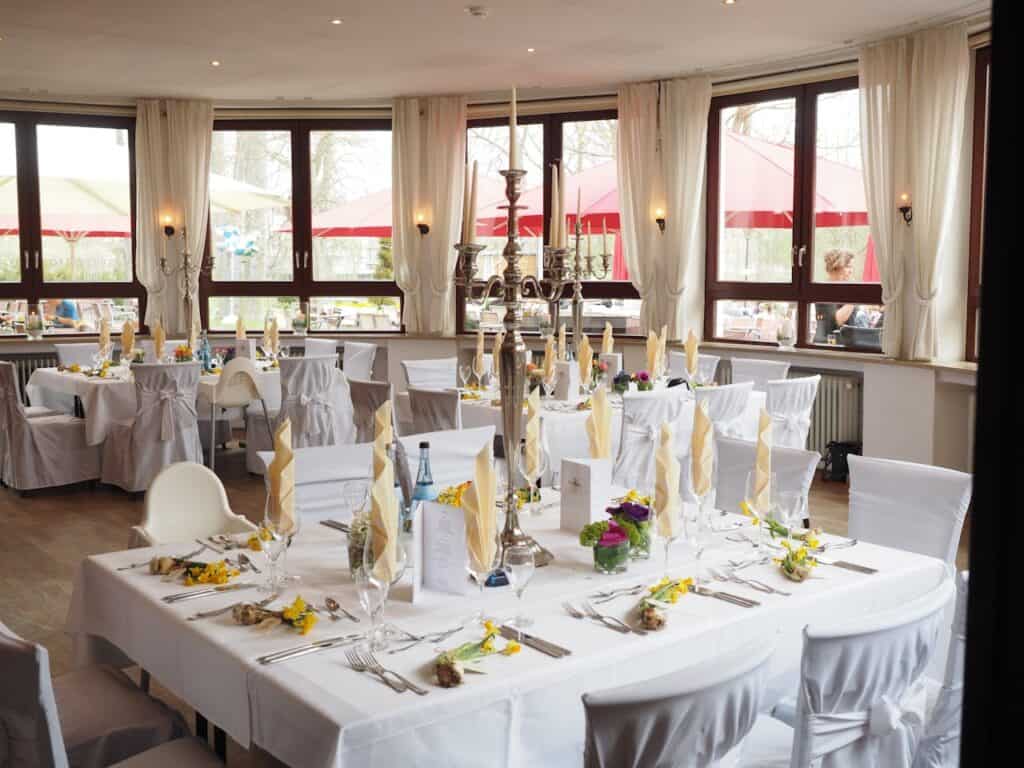
By Jermaine Thomas December 9, 2024
The catering sector is experiencing a significant change as sustainability becomes a focus for both companies and consumers. Organizing environmentally sustainable events is now more than a trend; it is a deliberate decision to lessen ecological effects and support a greener future. From zero-waste culinary projects to farm-to-table services, eco-friendly methods are transforming our approach to event organizing and catering.
Sustainable catering involves making mindful decisions at every stage of the process, guaranteeing that tasty dishes and unforgettable experiences do not harm the environment. As environmental awareness grows, individuals and organizations are reassessing their approach to hosting events, ranging from weddings to corporate meetings, to better align with sustainability objectives. This change signifies both a dedication to the environment and a reaction to increasing consumer demand for sustainable practices.
Understanding Sustainable Catering
Sustainable catering refers to practices that minimize the environmental footprint of food preparation and service. It involves mindful decisions at every stage, from sourcing ingredients to serving the final dish. But what truly sets sustainable catering apart from traditional catering is its emphasis on environmental, social, and ethical responsibility.
A fundamental element of sustainable catering is sourcing ingredients. Focusing on local and seasonal ingredients guarantees that the food is not only more fresh but also demands less energy for storage and transportation. Farm-to-table catering is fundamental to this approach, linking caterers straight to local farmers to minimize supply chain emissions and bolster the regional economy. Seasonal ingredients, especially, need less energy-driven farming methods such as greenhouses or distant refrigeration, making them a more eco-friendly option.
Food waste reduction is another critical component. According to the Food and Agriculture Organization, roughly one-third of all food produced globally is wasted. In the catering industry, this waste often comes from overproduction or leftovers at events. Sustainable catering addresses this issue through zero-waste food strategies, such as repurposing ingredients, composting organic waste, and donating surplus food to shelters or food banks. These practices help conserve resources while also addressing social inequalities.

The Eco-Conscious Consumer: Driving Change
The rise of sustainable catering is largely driven by the changing preferences of modern consumers, particularly Millennials and Gen Z. These younger generations are highly aware of environmental and social issues, and their purchasing decisions reflect a strong commitment to sustainability. For them, an event isn’t just about the experience—it’s about ensuring that the choices made align with their values.
Consequently, companies are reacting to this demand by implementing environmentally friendly practices. Today’s event participants seek more than just a tasty meal; they desire clarity regarding the origins of their food and the preparation methods involved. Caterers able to show that they obtain ingredients responsibly, minimize waste, and use eco-friendly packaging are more likely to draw in and keep clients.
The influence of eco-conscious consumers extends beyond individual events. Corporate clients, in particular, are using sustainable catering as a way to reinforce their commitment to environmental, social, and governance (ESG) goals. Companies hosting conferences, team-building retreats, or holiday parties are increasingly looking for caterers who can deliver on their promise of sustainability. This shift is helping to normalize eco-friendly practices across the industry.
Benefits of Sustainable Catering for Eco-Friendly Events
The benefits of sustainable catering are manifold, touching on environmental, social, and economic aspects. These advantages make it a compelling choice for both individuals and organizations planning events.
Environmental Impact: Sustainable catering directly addresses some of the most pressing environmental challenges, including climate change and resource depletion. By sourcing ingredients locally and seasonally, caterers can significantly reduce the carbon footprint associated with food production and transportation. Zero-waste food initiatives, such as composting and food donation programs, further ensure that resources are used efficiently and don’t end up in landfills.
Social Benefits: Backing local farmers and suppliers with farm-to-table catering enhances community connections and fosters economic stability. These collaborations also contribute to establishing a more equitable food system, guaranteeing that small-scale producers are fairly compensated for their efforts. Moreover, sustainable catering frequently emphasizes ethical factors, like fair trade principles and humane treatment of animals.
Economic and Reputational Gains: For businesses, hosting eco-friendly events can enhance brand image and appeal to environmentally conscious customers. Consumers are more likely to trust and support organizations that demonstrate a genuine commitment to sustainability. Moreover, sustainable practices can lead to cost savings over time, particularly through waste reduction and efficient resource use.
Key Components of Eco-Friendly Catering
Eco-friendly catering involves a holistic approach to reducing environmental impact while delivering exceptional food and service. While the concept encompasses many practices, some key components stand out as essential.
Ingredient Sourcing: Farm-to-table catering is central to sustainable practices. By collaborating closely with local farmers and producers, caterers can guarantee that ingredients are fresh, in season, and lightly processed. This method not only lowers the energy needed for transport and storage but also enhances the bond between consumers and the sources of their food. For example, menus that include locally sourced vegetables, free-range eggs, and sustainably harvested seafood emphasize the advantages of assisting local agricultural systems.
Waste Management: Waste is one of the biggest challenges in the catering industry, but zero-waste food practices are helping to change that. These practices involve a combination of strategies, such as composting food scraps, donating excess food, and designing portion-controlled menus that minimize leftovers. Many caterers are also adopting eco-friendly serveware, such as compostable plates, bamboo utensils, and reusable glassware, to reduce single-use plastic waste.
Challenges in Adopting Sustainable Catering
While the benefits of sustainable catering are clear, the path to implementing these practices is not without its challenges. Caterers must navigate a range of logistical, financial, and educational hurdles to make eco-friendly events a reality.
Cost Considerations: One of the most common misconceptions about sustainable catering is that it’s prohibitively expensive. While it’s true that organic and locally sourced ingredients can sometimes cost more, these expenses are often offset by savings in other areas, such as waste reduction and energy efficiency. Still, many caterers must work to find a balance between affordability and sustainability, especially when competing with traditional caterers offering lower-cost options.
Logistical Complexities: Acquiring local and seasonal products necessitates meticulous planning and organization. Some ingredients might not be accessible throughout the year, so caterers must be adaptable and inventive when crafting their menus. Moreover, collaborating with small-scale farmers and producers may occasionally entail more complex supply chains than depending on large distributors.
Client Education: Many clients are unfamiliar with what sustainable catering entails and why it matters. Caterers often need to invest time and resources in educating their clients about the benefits of eco-friendly practices. This includes explaining why a seasonal menu might offer fewer options but result in a higher-quality, lower-impact dining experience.

The Future of Sustainable Catering
The future of sustainable catering is bright, driven by innovation, consumer demand, and a growing awareness of environmental challenges. Several emerging trends and technologies are shaping what the industry will look like in the years to come.
Plant-Based Menus: With an increasing number of individuals embracing vegetarian and vegan diets, the need for plant-based catering choices is growing. These menus address dietary choices and also feature a much lower environmental footprint than meat-centered dishes. Creating plant-based foods demands less water, land, and energy, making them an eco-friendly option for large events.
Technological Innovations: Technology is playing a critical role in advancing sustainability in the catering industry. For example, AI-powered inventory management systems help caterers forecast demand more accurately, reducing food waste. Similarly, apps that connect caterers with food donation programs ensure that surplus food reaches those in need rather than being discarded.
Zero-Waste Events: The concept of zero-waste food is expanding to encompass entire events. From reusable decorations and compostable serveware to recycling stations and digital invitations, zero-waste events are becoming the gold standard for eco-conscious gatherings.
Conclusion
Sustainable catering isn’t just a fleeting trend; it’s an essential reaction to the environmental issues we encounter today. By adopting methods such as farm-to-table catering, zero-waste food programs, and sustainable packaging, we can greatly lessen the ecological footprint of events while aiding local communities and encouraging ethical practices.
Whether you’re planning a wedding, a corporate retreat, or a family gathering, choosing sustainable catering is a powerful way to make a positive impact. As consumers, we have the ability to drive change by supporting businesses that prioritize sustainability. Together, we can create a future where every event is not only memorable but also a step toward a healthier planet.